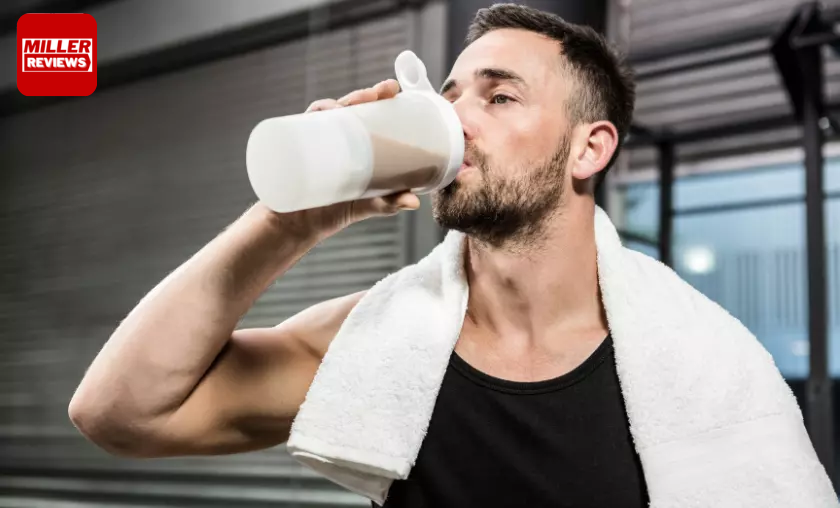Sports Supplements, Every two years, without fail, entire families gather around the television to immerse themselves in the grand spectacle of the Olympics. Whether it’s the awe-inspiring accomplishments of athletes in the summer or the dazzling performances in the winter, we can’t help but be captivated by their incredible feats.
It sparks a sense of wonder within us, prompting the question: How do they manage such extraordinary achievements? As reiterated by the athletes and countless others, the answer lies in their unwavering dedication and relentless perseverance.
Table of Contents
Undoubtedly, hard work and determination serve as the foundation for their success. Yet, this notion of tirelessly striving for greatness can appear intimidating to many. Consequently, numerous individuals, like ourselves, seek solace in the realm of supplementary sports aids, hoping for that extra edge on their journey towards excellence.
A Brief Intro to Sports Supplements

Ever since the 1940s, when groundbreaking experiments shed light on the potential benefits of incorporating supplemental protein to enhance muscle mass, the notion of seeking additional protein has been etched into the minds of athletes. The arrival of isolated protein powders in the 1970s and 1980s further fueled the widespread adoption of these supplements among athletes, all in pursuit of gaining that elusive competitive advantage. Yet, this concept is far from novel.
If we cast our gaze back to the ancient days of the Olympics in Greece, we find athletes resorting to specific herbs or meats to amplify their performance. From the resurgence of the Games in 1896 to the present day, athletes have persistently turned to caffeine as a means to enhance their abilities.
Nevertheless, as with most things, there exists a duality—a positive aspect alongside the negative. Before immersing ourselves in the realm of sports supplements readily available at our local gym equipment store, it would be wise to examine the advantages and disadvantages they offer.
The Pros
1. Give You Energy

There come moments in our fitness journey when we find ourselves yearning for that additional push to surmount the challenges that lie ahead. Enter sports supplements equipped with potent ingredients like caffeine, B vitamins, and carbohydrates, all designed to elevate performance and provide the vital energy surge required to conquer the formidable hurdles.
Caffeine, a renowned energy stimulant, can enhance strength and bolster energy levels, allowing us to tap into our full potential. Concurrently, B vitamins play a pivotal role in sustaining these energy reserves, preventing the onset of weariness and fatigue. Lastly, carbohydrates emerge as our body’s favored source of fuel, ideal for enduring those demanding, grueling workouts that test our endurance. When seeking a sports supplement, opting for one fortified with these essential elements promises a more robust and rewarding fitness experience.
2. Help Your Body Recover

Have you ever experienced the morning after a grueling workout, awakening to aches and soreness permeating every inch of your being? If not, envision it as a muscular and joint hangover—a reminder of the exertion you subjected your body to. Our muscles consist of intricate fibers that undergo wear and tear with each use. The more we push them, the more they strain, fray, and even tear. This is precisely where sports supplements step in.
Once you’ve invested in top-of-the-line gym equipment, such as treadmills, bikes, benches, and weights, and pushed yourself to the limits, you require something to aid your recovery. The protein-rich powders found within sports supplements serve as the building blocks our bodies utilize to reconstruct and fortify muscle fibers, paving the way for their future growth and enhanced strength. Consider these supplements as the essential support system needed to bounce back and thrive in your fitness endeavors.
3. Keep You Full, But Not TOO Full

Suppose you are one of those individuals blessed with a seemingly insatiable metabolism. In that case, you are well acquainted with the struggle of shedding unwanted pounds while enduring an incessant urge to feast at an all-you-can-eat extravaganza right after your workout. Fortunately, fortune smiles upon you as a protein-infused shake eagerly awaits your return home, ready to appease the ceaseless growls emanating from your belly.
In a remarkable 2016 study, participants who adhered to a high-protein diet experienced an additional gain of 2.4 pounds (1.1 kilograms) in muscle mass and a further loss of 2.9 pounds (1.3 kilograms) in body fat compared to their low-protein counterparts. The ingredients present in a protein shake work wonders in satiating your hunger far more rapidly than succumbing to the allure of devouring a bowl of ice cream.
Keeping you pleasantly full also gives your body a gentle reminder, signaling the appropriate moment to cease eating. This ensures that you avoid the perilous scenario of succumbing to insatiable cravings on your “off days” and consuming copious amounts of food post-workout, only to find yourself struggling for breath shortly thereafter. (Rest assured, we’ve all been there—it’s perfectly alright.)
The Cons
1. Health Concerns

While our everyday food and drug products undergo rigorous scrutiny through Health Canada’s Food Inspection Agency, operating within the Canada Food and Drugs Act framework, sports supplements need more attention from public health officials.
Unsurprisingly, this raises significant concerns and prompts a furrowing of brows, as it opens the door for the presence of prohibited substances in sports supplements imported from foreign sources. Alarming reports have surfaced regarding the discovery of chemical additives, such as synthetic food dyes, lurking within sports supplements readily available on store shelves. Additionally, certain substances like silicon dioxide, employed to prevent powder clumping, may pose potential risks when inhaled in substantial quantities.
This glaring disparity in inspection and oversight casts a shadow of doubt over the safety and reliability of sports supplements, highlighting the urgent need for closer scrutiny and regulation within this realm.
2. Too Much Protein!

The ever-debated topic of protein—is undoubtedly beneficial, but like everything else in life, it is best enjoyed in moderation. According to the British Department of Health, the recommended daily intake for the average adult male and female stands at 55.5 grams for men and 45 grams for women.
While protein holds undeniable value, exceeding the recommended daily amount on a regular basis may expose you to a higher risk of adverse effects. These can include uncomfortable symptoms such as constipation, increased bowel movements, nausea, cramps, bloating, and a diminished appetite. It is crucial to bear in mind that when it comes to what we nourish our bodies with, understanding our limits is paramount. Even if something is deemed “good” for us, it is only beneficial up to a certain extent.
3. Potential Side Effects

Let me shed some light on a piece of information that the friendly cashier at your neighborhood gym equipment store may conveniently overlook while promoting sports supplements—a potential Pandora’s box of health risks lurks within.
Indulging in an excessive intake of protein has been associated with aggravated kidney issues and a heightened vulnerability to developing osteoporosis later in life. On the other hand, the inclusion of creatine, another prevalent ingredient found in sports supplements, has been linked to weight gain, feelings of anxiety, bouts of nausea, and a heightened risk of kidney problems.
It is essential to approach the realm of sports supplements with an informed perspective, recognizing that their allure may conceal a darker side. Prioritizing our health means staying cognizant of the potential repercussions that can arise from excessive consumption of these products, thereby making well-informed decisions regarding our overall well-being.
The Verdict – Should You Take Sports Supplements?

Despite the initial impression this article may give, the answer to whether sports supplements are dangerous is far from a simple “no.” The truth is nuanced and contingent on factors such as responsible consumption. You can navigate this realm safely by exercising prudence and selecting reputable brands that don’t play tricks with your trust or loading up on excessive protein cups in your shake.
While certain sports supplements, like protein powders, offer a convenient and economical means of replenishing both your muscles and satiating your hunger, others containing highly specific vitamins, such as vitamin B-12, can be easily substituted with natural sources like beef, tuna, clams, or fortified cereals.
Determining whether sports supplements are cost-effective for you hinges on your judgment. Equally important is acquiring a thorough understanding of what to buy and where to source your ideal supplements, ensuring they harmonize with your exercise routine. Striking the right balance is paramount in this pursuit, and being well-informed is the key to achieving that equilibrium.
Conclusion
As we have explored the pros and cons of sports supplements in this comprehensive guide, it becomes clear that they possess both potential benefits and risks. While sports supplements can provide an extra boost and support for athletic performance, caution must be exercised to avoid overindulgence and potential adverse effects.
Understanding your individual needs, consulting with professionals, and making informed choices are essential when considering the use of sports supplements. By striking a balance, being mindful of quality and safety, and prioritizing your overall well-being, you can harness the potential advantages of sports supplements while minimizing any potential drawbacks. Armed with this knowledge, you are empowered to make educated decisions that align with your goals and optimize your journey toward a healthier, fitter, and more active lifestyle.
FAQs
How Do I Choose the Right Sports Supplement for My Needs?
Choosing the right sports supplement requires careful consideration. Start by identifying your specific fitness goals and consulting with a healthcare professional or registered dietitian who can provide personalized advice.
Research different products read reviews, and look for reputable brands that prioritize quality, transparency, and third-party testing. It’s essential to select supplements that align with your goals, preferences, and potential dietary restrictions or allergies.
Can I Trust the Claims Made by Sports Supplement Manufacturers?
It is crucial to approach supplement claims with a critical mindset. While some manufacturers provide accurate and evidence-based information, others may make exaggerated claims or use misleading marketing tactics.
Look for supplements backed by scientific research and seek out third-party certifications, such as NSF Certified for Sport or Informed-Sport, which ensure the product has undergone rigorous testing for quality and safety.
Should I Be Concerned About the Safety of Sports Supplements?
Safety should be a top priority when considering sports supplements. While many supplements are safe when used as directed, some may pose risks, especially if misused or combined with certain medications or medical conditions.
It’s important to consult with a healthcare professional before starting any new supplement, especially if you have underlying health concerns or take medications.
Are There Natural Alternatives to Sports Supplements?
Yes, natural alternatives to sports supplements can provide similar benefits. Whole foods, such as lean meats, fish, dairy products, legumes, and nuts, can be excellent sources of protein.
Fresh fruits, vegetables, and whole grains offer a wide array of vitamins, minerals, and antioxidants. Balancing your diet with nutrient-dense whole foods can meet your nutritional needs without relying heavily on supplements.
Can Sports Supplements Improve Athletic Performance?
Sports supplements have the potential to enhance athletic performance in certain circumstances. For example, caffeine-containing supplements may increase alertness and endurance, while nitric oxide boosters may improve blood flow and exercise capacity.
However, individual responses can vary, and the impact of supplements on performance may be influenced by various factors, including genetics, training status, and sport-specific demands.
For More amazing articles related to Fitness Check out our website Over Here
To Read more similar articles click here
Thanks for visiting our Website. If you appreciate our work, kindly show us some support in our comments section 🙂